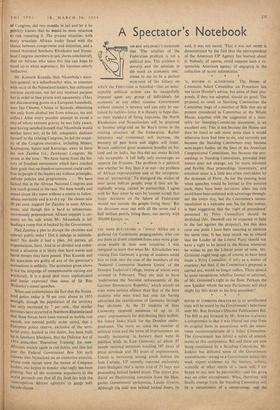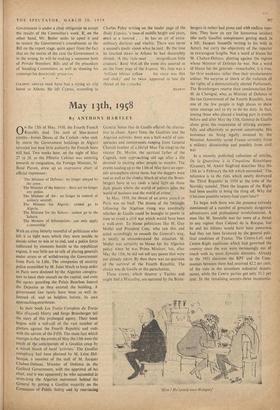HOUSE OF COMMONS PROCEDURE in its unreformed state will be
tested by the Government's behaviour over Mr. Roy Jenkins's Obscene Publications Bill. The Bill as put forward by Mr. Jenkins is already a compromise in that it was altered last year from its original form in accordance with the unani- mous recommendations of a Select Committee. The Government has tabled a series of amend- ments to this compromise Bill and these are now being considered by a Standing Committee. Mr. Jenkins has defeated some of the Government amendments—owing to a Government defeat this week expert evidence on the literary, artistic, scientific or other merits of a book will, I an? happy to say, now be permissible—and has givers way on other amendments. What, therefore, will finally emerge from the Standing Committee will be a compromise of a compromise, and the Government is under a clear obligation to accept the results of the Committee's work. If, on the other hand, Mr. Butler seeks to upset it and to restore the Government's amendments to the Bill on the report stage, quite apart from the fact that on the merits of the case the Government is in the wrong, he will be making a nonsense both of Private Members' Bills and of the procedure of Standing Committees, as well as showing his contempt for democratic processes.
COLONEL GRIVAS must have had a trying air trip home to Athens. He left Cyprus, according to Charles Foley writing on the leader page of the Daily Express, 'a man of middle height and years, erect as a ramrod . . . he has an air of extra- ordinary decision and vitality. There was never a second's doubt about what he said. By the time he touched down in Athens he had discernibly shrunk, 'A tiny little man . . insignificant little creature,' Rene McColl the same day assured us on the front page of tht•Express. His face was a brilliant bilious .yellow . his voice was thin and shaky' and he twice .'appeared to lose the thread of his remarks.'



































 Previous page
Previous page